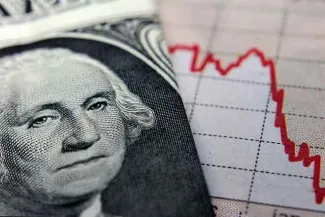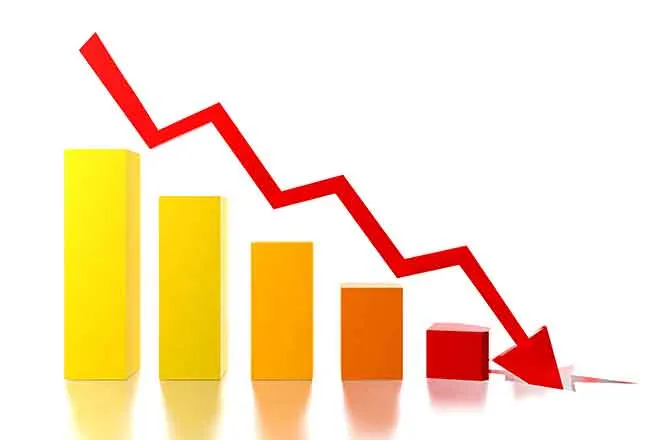
Commentary - Public media is an invaluable service to all Coloradans
In July 2020, just several months into the COVID pandemic, Colorado Public Radio published a remarkable story about how the virus was spreading just as a “brain drain” weakened the state’s public health agency and the governor was turning to outside tech entrepreneurs for help with disease testing.
Relying on public records and more than two dozen interviews with officials and experts, CPR produced one of the most illuminating examples of Colorado journalism on the biggest news story of the era. The coverage had no agenda but the truth, and it enriched all Coloradans’ understanding of how public officials at the top of state government handled their responsibilities.
Such accountability reporting has always posed a threat to tyrants, including the tyrants in power today.

© iStock - claffra
President Donald Trump is trying to undermine National Public Radio — of which CPR is a member station — and the Public Broadcasting Service, falsely accusing them of bias. His real objection is that accurate, independent journalism exposes him to scrutiny.
Like all of the Trump administration’s assaults on institutions — in education, science, health, public welfare — the ultimate victim of his attacks on public media is the public. But, at least in this case, a direct form of resistance is readily available to anyone who values the threatened institutions.
Public media is grounded in the Corporation for Public Broadcasting, a private nonprofit established in 1967 by Congress. Lawmakers at the time thought public media “furthers the general welfare” and should “be responsive to the interest of people both in particular localities and throughout the United States.” The act that created the CPB envisioned TV and radio programs that “address national concerns and solve local problems through community programs and outreach programs.”
Anticipating political hostility to independent programming, the act was careful to ensure that public media has “protection from extraneous interference and control.”
In 1969, CPB established PBS, which delivers beloved educational, news, cultural and family programming with member stations around the country. Rocky Mountain PBS, based in Denver, is the only statewide television network in Colorado.
The following year, NPR was incorporated. The nonprofit and its local member stations reach more than 95 percent of Americans. The stations provide invaluable, impartial journalism, and they broadcast emergency alerts and public safety information during disasters. The NPR news programs “Morning Edition” and “All Things Considered,” both carried by Colorado member stations like CPR, are irreplaceable components of many Americans’ daily routines.

© iStock - scanrail
These public media sources, which are free for all Americans, have a long public-approving, award-winning tradition of fulfilling the vision Congress articulated for public media almost six decades ago. But Trump has actualized the initial fear that public media would be threatened by interference. May 1, he issued an executive order calling for CPB funding for NPR and PBS to be canceled.
Loss of federal funding would hurt local stations most. NPR member stations — such as KUNC in Greeley and KRCC in Colorado Springs — typically rely more on direct federal funding than does NPR. CPR gets about 5 percent of its annual funding from the federal government, while NPR gets about 1 percent. Direct federal money comprises up to 10 percent of the budget of some local stations.
“The reality of a loss of federal funding would be to weaken or shutter locally owned independent stations particularly in remote and rural communities,” CPR said in a recent statement.
In case 5 percent doesn’t sound like a lot, it amounts to about $1.4 million, a loss that CPR, an outlet that laid off 15 staffers just last year, would surely struggle to absorb without a noticeable decline. And the threat runs deep. Public media stations use pooled assets such as satellite networks and emergency alert systems, which could be compromised for CPR and other local stations that benefit from them. Also, NPR gets most of its funding from member stations like CPR, so a loss of direct federal funding for local stations could in turn mean a substantial loss of indirect federal funding for NPR.
CPR and Rocky Mountain PBS get most of their funding from individual, business and foundation contributions. This suggests an answer to a tyrant’s attacks. There’s little that individuals can do to counter, say, Trump’s efforts to shut down the U.S. Education Department. But individual community members who value trusted institutions like CPR and Rocky Mountain PBS can act as a form of immediate, grassroots countermeasure to MAGA hostility.
That support promotes the general welfare, as Congress intended. CPR is the only outlet in Colorado with a Washington, D.C.-based reporter focused on Colorado issues. For almost 20 years, Colorado governors have regularly sat down with CPR for interviews, which often present insights about state policy that are not available anywhere else. Through voter guides, state Legislature coverage and other useful nonpartisan reporting, the outlet consistently elevates the community life of the state, adhering to the highest professional standards and exemplifying the essence of the First Amendment.
This is what Trump wants Americans to believe is harmful to the country. But a weakened public media in the state would mean a weakened Colorado.
Disclosure: Colorado Newsline is a tenant in a building operated by Rocky Mountain PBS parent organization Rocky Mountain Public Media. Newsline’s journalism is wholly independent of RMPM.















